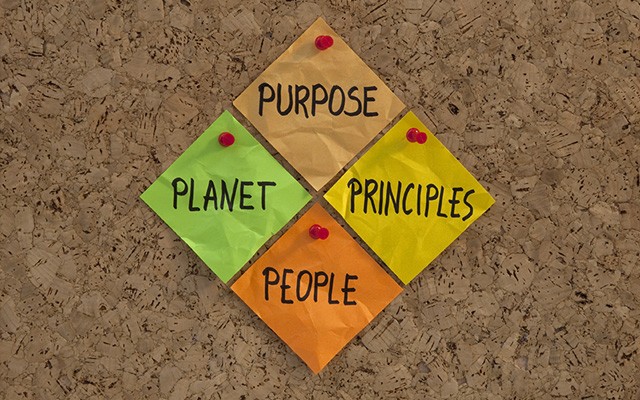The Three Pillars of Green: People, Planet, Profit
There’s no bigger buzzword in business these days than “green.” Companies of all types are making environmental sustainability a priority and choosing vendors who align with their goals. Before jumping on the bandwagon, however, it’s important to understand the true meaning of sustainability.
In fact, there are three pillars of corporate sustainability and each is as important as the other. Worrying about the environment alone isn’t enough, companies must also consider social and economic issues. The needs of businesses, the public, and the environment are all intertwined, and corporate sustainability is a balancing act that takes all into account.
Pillar 1: Planet
When people think about going green, they focus on eco-friendly measures like recycling or reducing waste. Protecting the environment is definitely an important piece of the sustainability puzzle, and forward-thinking companies should do their part.
Environmental sustainability is making certain all of your products, facilities, and operations are designed to reduce your negative impact on the planet. That means companies, like individuals, need to stop taking natural resources for granted.
- Make “reduce, reuse, recycle” your mantra.
- Start a recycling program in your office
- Use electronic communication instead of paper
- Waste less water and energy by using efficient tools
- Green up your buying habits.
- Swap caustic chemicals for environmentally preferable options
- Choose products with third-party green certifications
- Buy in bulk to reduce packaging waste
- Improve indoor air quality.
- Purchase vacuums with HEPA filters
- Use microfiber mops to capture more dust
- Add walk-off mats to prevent pollutants from entering the building
- Stop using chemical air fresheners
Pillar 2: People
A socially sustainable business performs in the best interest of its employees, community, and world. It acts responsibly and treats all stakeholders fairly. Social sustainability is critical to the long-term success of a company or community. What does this mean for someone in the jan/san industry?
- Employees: Offer livable wages and a positive work environment (things such as flexible schedules, free learning opportunities, and better benefits).
- Community: Give back to your city and/or industry through collaboration, fundraising, sponsorship volunteerism, or scholarships.
- World: Make sure you understand your supply chain and the story behind the products you purchase. Are people paid fairly and provided safe work environments?
Pillar 3: Profit
The economic pillar of sustainability is the one on which most business owners focus. After all, a company must be profitable to be sustainable over the long haul. This pillar is important because a failing economy lacks the resources necessary to strengthen the other pillars, but it must remain on equal footing with people and the planet.
How does this relate to your business? To claim sustainability, you can’t allow profits to trump your social or environmental responsibilities. There must be a balance among all three, which may mean making a bit less money because of higher costs for green cleaning products or for paying employees fair wages.
Sustainability Defined
According to the UN World Commission on Environment & Development, sustainability means meeting the needs of the present without compromising the ability of future generations to meet their own needs.
 Increase Profits & Productivity with Your Equipment
Increase Profits & Productivity with Your Equipment
Tornado Industries does more then sell equipment. We help solve facility cleaning challenges. Let’s talk about your cleaning challenges in person.

